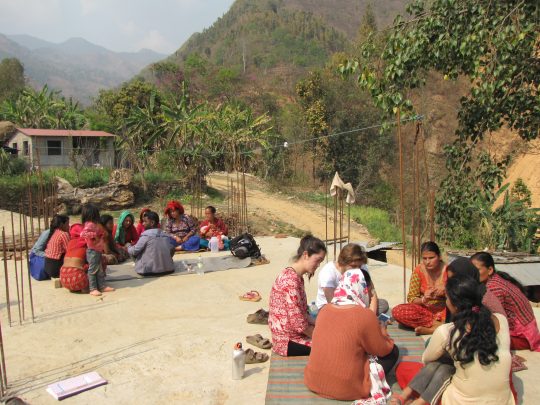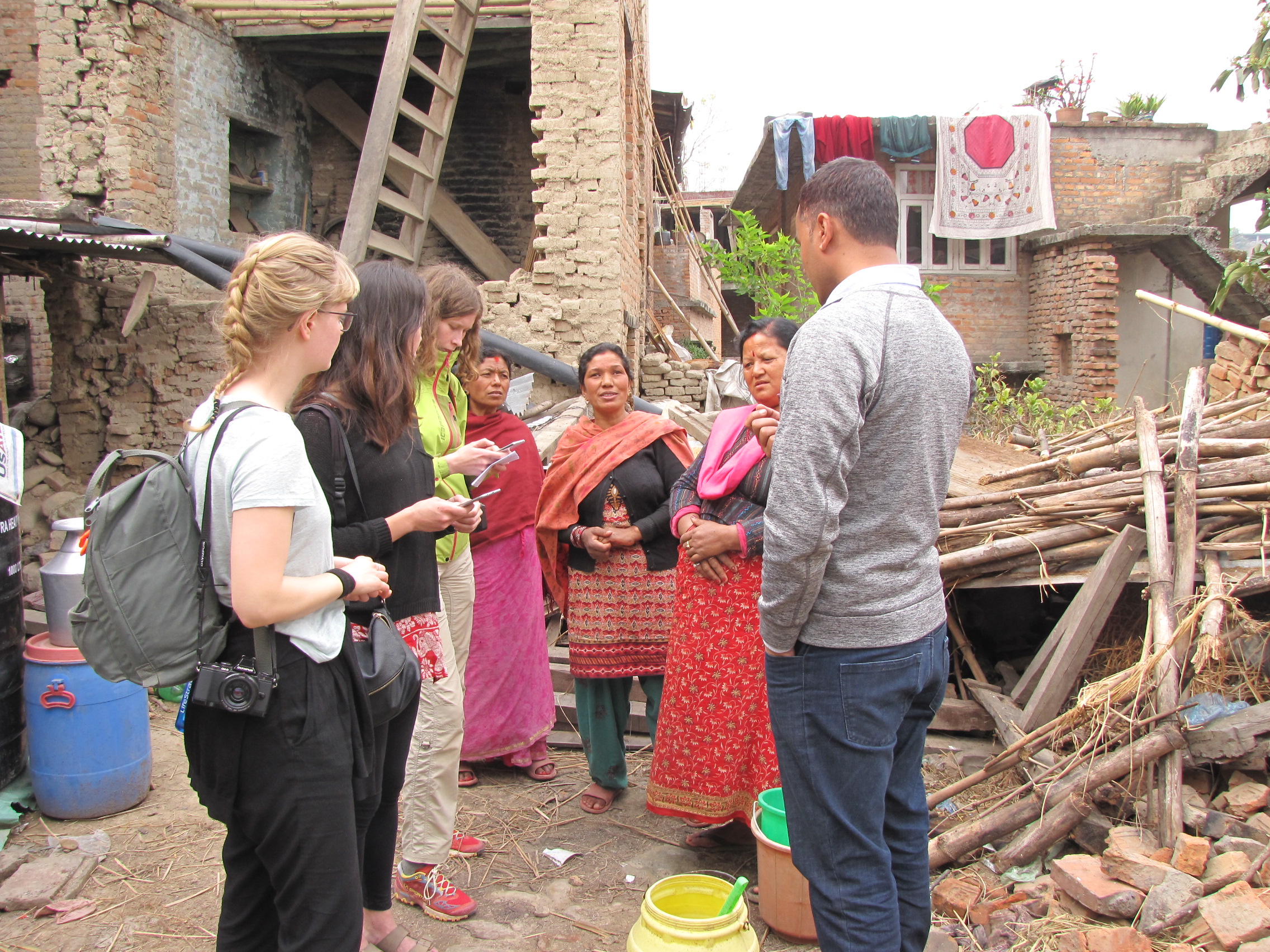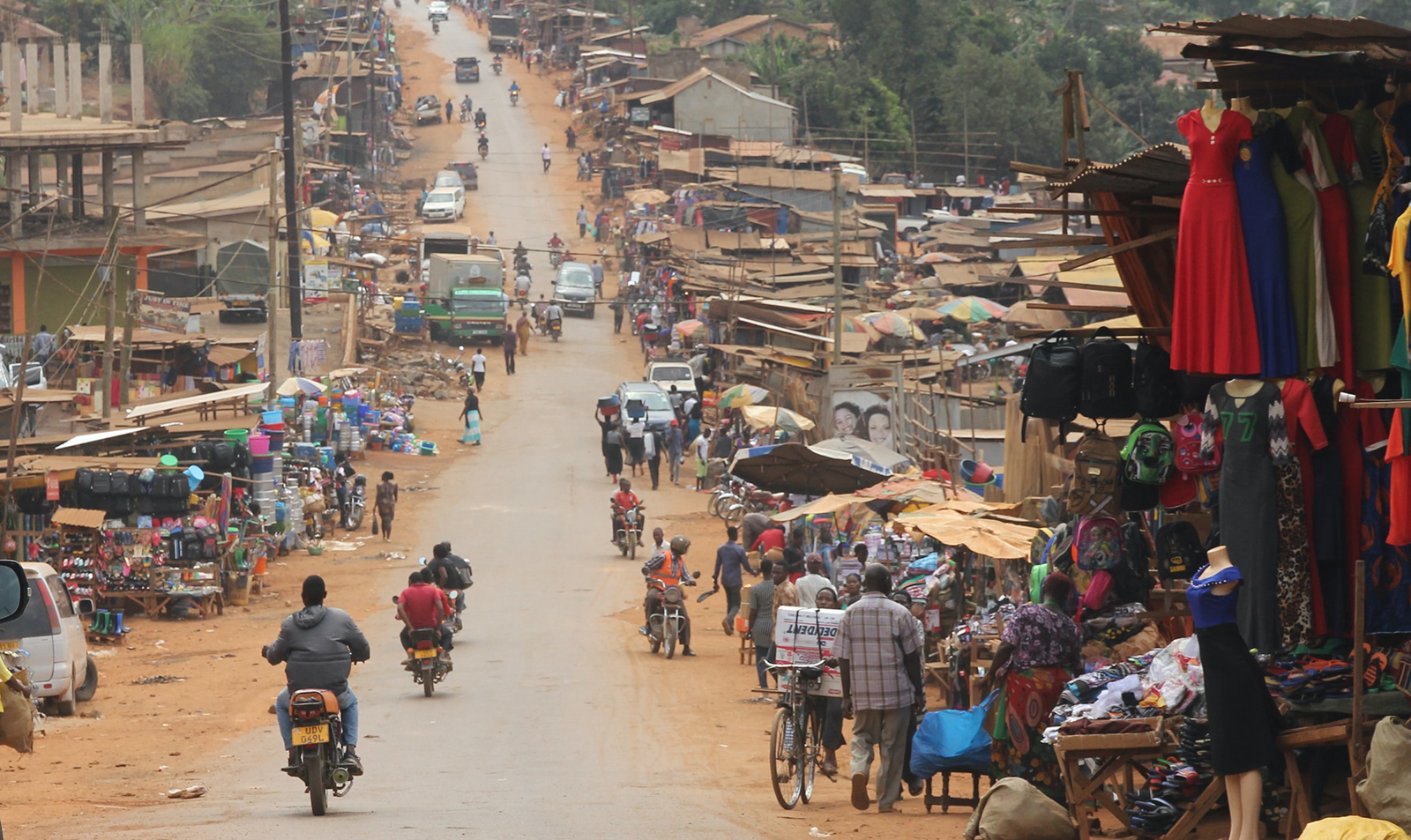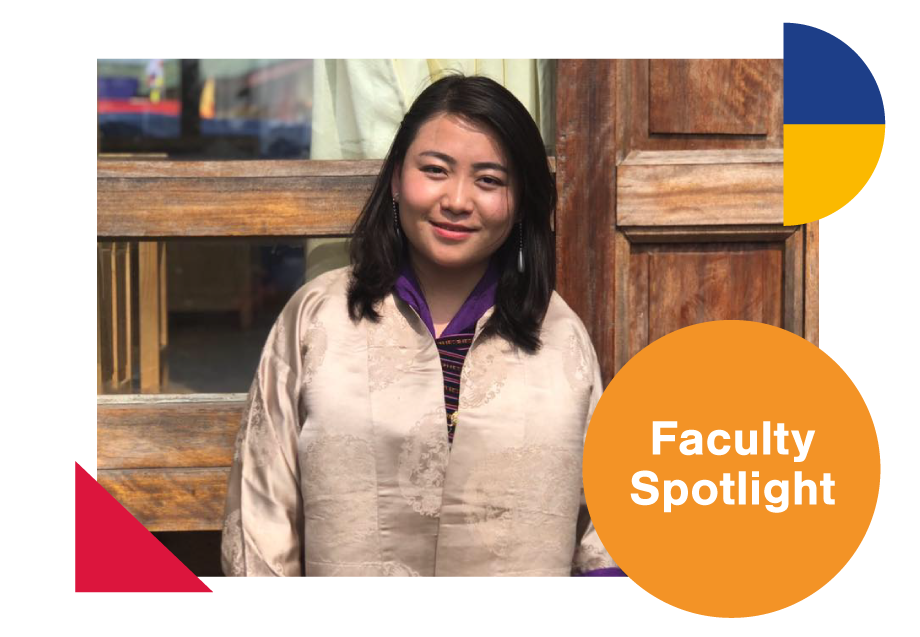(Photo: Sustainable Global Technologies studio course students in Nepal in 2017)
A new Erasmus + project coordinated by Aalto Global Impact will establish a sustainable development learning platform with partners in Europe and India, Nepal and Bhutan.
Aalto Global Impact (AGI) has received the €1 million maximum funding from the European Commission’s Erasmus + Higher Education – International Capacity Building programme for a new cooperative project which aims to promote problem-based learning in South Asia.
The “Strengthening problem-based learning in South Asian Universities” (PBL South Asia) project involves ten different universities that are located in Finland, India, Nepal, Bhutan, the Netherlands and Lithuania. The partner universities will jointly pilot multidisciplinary project courses in South Asian countries.
Each year, the project will include three sustainable development challenges selected by the South Asian universities and arising from the needs of surrounding communities. Through the case pilots, teacher training workshops and a methods development platform, the universities will each explore ways to strengthen problem-based learning (PBL) for sustainable development in their curricula.
“The project promotes student learning and university networks in relation to complex societal, economic and environmental challenges. In addition to the technical knowledge related to individual cases, we aim to build partnership skills and working methods that are sensitive to the interests and requirements of the local environment and communities. Students will deal with concrete development problems in peer groups and learn to operate in a multicultural environment. Faculty, on the other hand, will further develop existing teaching methods to build much needed international practice in problem-based teaching models that support local communities”, explains Riina Subra, who is leading the project.
The student projects will involve other actors, such as non-governmental organisations, businesses and local authorities. The first cooperation project, coordinated by Aalto University’s Sustainable Global Technologies programme, focuses on post-earthquake reconstruction in Nepal.

“PBL will be a very good tool to motivate the new generation of students in creative learning, and to build linkages between university education and the surrounding communities”, says Lena Sthapit, Deputy Head of the Department of Civil Engineering at the Asian Institute of Technology & Management in Nepal.
One stimulus for the project has been the positive experiences obtained from the PBL East Africa project, which was initiated in 2017. In this collaboration Aalto University and the partnering East African universities work on sustainable development challenges in Kenya, Tanzania and Uganda.
“The peer-learning model developed in the project has generated active cooperation and learning in both Finland and partnering countries and is leading to the formation of new course modules and multidisciplinary teaching in East African universities”, says Riina Subra.
“Students from Aalto University schools can get involved in the PBL South Asia projects via several masters’ programmes, such as the cross-disciplinary Creative Sustainability and International Design Business Management master’s programmes, the Sustainable Global Technologies studio course and several master’s programmes of the School of Electrical Engineering and School of Engineering”, confirms Aalto Global Impact’s Director Teija Lehtonen.
The PBL South Asia project includes the following universities:
Aalto University, Finland
Kathmandu University, Nepal
Royal University of Bhutan, Bhutan
Asian Institute of Technology & Management, Nepal
Indian Institute of Technology Bombay, India
Indian Institute of Science Bangalore, India
Delft University of Technology, Netherlands
Kaunas University of Technology, Lithuania
Nepal Engineering College, Nepal
Sagarmatha Engineering College, Nepal
More information:
Riina Subra, Senior Manager, Aalto Global Impact
+358 50-4066251
riina.subra@aalto.fi
Teija Lehtonen, Director, Aalto Global Impact
+358 400 618328
teija.lehtonen@aalto.fi
Aalto Global Impact (AGI) promotes and facilitates Aalto University´s
research and education for global sustainable development.
AGI on Facebook
@AGI_tweets
Text: Annamari Tolonen
Photos: Kristjana Adalgeirsdottir
Tags:
PBL South Asia
This post was written by AGI




